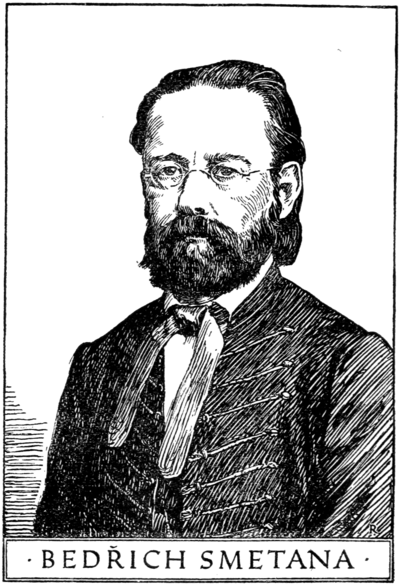The Music of Bohemia/The Music of Bohemia

THE MUSIC OF
BOHEMIA
IT is the aim of this sketch to set forth the comparatively unfamiliar facts of the musical life of the Czechoslovaks, that people who for so long lived submerged, or, as the old Czech proverb has it, "mixed in the same bag with Germans and Hungarians." The various terms, Bohemian, Czech, Slovak, Czechoslovak, used in this book would probably puzzle an American reader if not defined; thus, to save the long historical and geographical explanations, we may be thoroughly assured by the fact that all these different names mean one nation only, that of the most western branch of the Slavic race in Europe. "Czech" is the Slav name for the Slav people and language in Bohemia,Moravia, and Silesia.The terms used to designate the whole country, the state, are "Bohemia" and "Bohemian." The Czechs themselves do not employ this distinction, but use the word "Czech" in both senses. Slovaks are that people who live in the northwestern part of Hungary, called Slovakia, which with Bohemia forms the present republic and nation of the Czechoslovaks.[1]
Bohemian music is not so well known in America as its artistic value and quality deserve. The reasons why it is not so well known are: first, that it was often classed as German music, since it was printed by German publishers; and secondly, it was handicapped by false criticisms by Germans, who saw in this Bohemian musical enthusiasm a desire to further national aims. It is true that the artistic works of great masters help much to foster racial pride and are great moral supports to national efforts, but it is more by means of their regenerative artistic qualities than by sentimental nationalistic self-praise. The works of the great Czech masters are worth studying by all lovers of music.
The Czechoslovak nation has received political recognition by the Allied nations and the United States, which has thus made their dream of political independence come true. The people of Czechoslovak origin in the United States, being free and unrestricted under the Stars and Stripes, were able to assist their old country in fighting for freedom. Feeling that this help was possible only in a country like our great democratic nation, they gratefully try to reciprocate by bringing to the American people the best of the Czechoslovak culture.
- ↑ Unfortunately, the proper term "Bohemian" has been confused with its other meaning, a synonym of the word "Gypsy." Some Gypsies coming from Bohemia to France in the Middle Ages were called "Bohemiens" through a misunderstanding. The British composer Balfe, in the overture to his opera The Bohemian Girl, introduced by mistake a Bohemian (Czech) folk-melody as a characteristic Gypsy tune. See the Allegro theme.
As Gypsies are characterized by their carefree and adventurous life, the term, thus misapplied, assumed an entirely different meaning: a class of people such as would-be artists, or people unhampered by convention.
